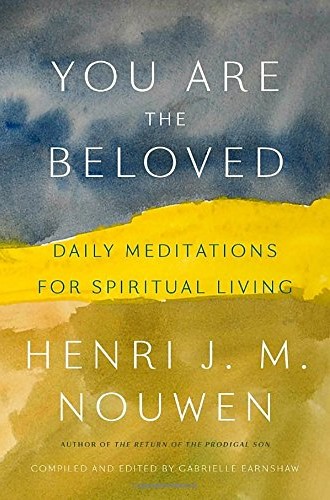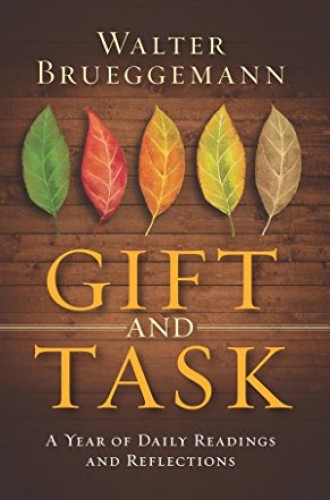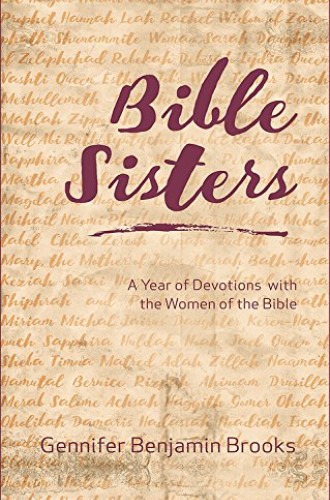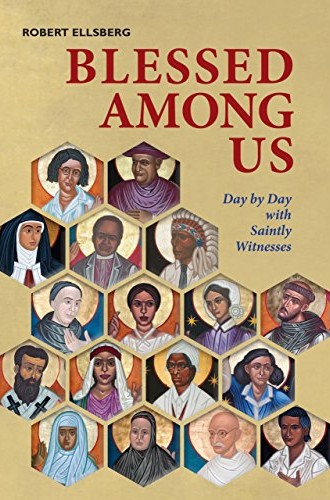The unadorned self, living forward, and a great lake of beer
What I found when I looked up today’s date in four daily devotional books
“Do you know of any good daily devotional books?” a friend asked me. “My pastor could use a new one.” I searched my shelves at the office this morning and found four books that I thought my friend’s pastor might find beneficial, each containing a year’s worth of devotions. But how would I assess them? I decided to open each one to today’s date—February 1.
I began with Henri Nouwen. The collection of his writings compiled and edited by Gabrielle Earnshaw contains a rich variety of prayers, theological reflections, excerpts from letters, and musings on scripture. The entry for February 1 is excerpted from In the Name of Jesus. “The first thing that struck me when I came to live in a house with mentally handicapped people,” Nouwen reflects, “was that their liking and disliking me had absolutely nothing to do with the many useful things I had done until then.” It didn’t matter anymore that he’d spent 20 years at Notre Dame, Yale, and Harvard. Nouwen is honest about the anxiety this reality caused him, but he’s also honest about the transformative effect it had on him. It forced him “to reclaim that unadorned self” that’s unpretentious and marked by vulnerability, “open to receive and give love regardless of any accomplishments.” Wise words.
I moved on to Walter Brueggemann. I quickly learned that the title of his book, Gift and Task, accurately describes its contents. First of all, I had to work to find the right page, since there was no page for February 1. The book is organized by the liturgical calendar. (Thank God for Working Preacher, which told me that today is the Thursday after Epiphany 4.) When I turned to that page, I found a list of the daily lectionary readings, a brief prayer, and a thoughtful reflection on the readings. I wouldn’t just be reading a page a day with this book—I’d be digging into four biblical texts as well. What a marvelous gift, but also a task! Brueggemann’s rich engagement with scripture was apparent to me immediately. “Faith is living forward into the future,” he begins, and he then traces this idea through three of the texts, concluding “God is at work now in the world, keeping promises to those who have been excluded from a safe place.” Amen to that.
With all due respect to Nouwen and Brueggemann, I was feeling a bit inundated by the wise words of older white men. I turned to the wise words of Gennifer Benjamin Brooks, who teaches preaching at Garrett-Evangelical Theological Seminary. Her book contains reflections on biblical women—from Hagar, Sarah, and Mary Magdalene to the daughters of Zelophehad, Sapphira, and Chloe. The woman assigned for today (“Day 32”) is Zipporah, and Brooks names the injustice inherent in the fact that Zippporah was given by her father Jethro to become Moses’ wife (Exod. 2:21). “She had no say, and if she had tried to speak, no one would have listened.” After noting that power is a divine attribute, Brooks concludes: “When we claim the presence of God in us, God empowers us to resist anything that would usurp that power.” There isn’t enough room left on the page for Brooks to discuss Zipporah’s acts of resistance and empowerment (see, for example, Exod. 4:24-26). But readers will likely make their own connections between Brooks’s words, the story of Zipporah, and the way God is calling us in a time of Trump and #MeToo.
Finally, I turned to Robert Ellsberg’s lively stories of the saints. Saints here includes some canonized by the Catholic church and others (from Rosa Parks to Marc Chagall to Black Elk to Mohandas Gandhi) who make up the great cloud of witnesses in a broader sense. There are two saints assigned to each day, with reflections on facing pages. The first for February 1, St. Brigid of Ireland, is known as a generous almsgiver, a spiritual teacher, and a healer. Perhaps most memorably, she is celebrated for having “supplied beer out of one barrel to eighteen churches.” The page closes with Brigid’s earnest words: “I would like a great lake of beer for the King of the kings; I would like the people of heaven to be drinking it through time eternal.” Double amen to that.
But just when I was getting excited about the heavenly lake of beer, I looked at the facing page and sobered up quickly. The second saint for the day is Alfred Delp. He was a German Jesuit who helped organize resistance against the Nazis and was arrested for treason. He was executed in February of 1945, at age 37. “The inner law of freedom,” Delp wrote from prison in Advent of 1944, “sings that no death can kill us; life is eternal.”
I put the four books aside and pondered. Which one should I recommend to my friend’s pastor? Unpretentious vulnerability? The challenge of faith? Women empowered for resistance? Generosity through beer and singing hope in the face of martyrdom? I don’t have an answer yet, but I’m glad I read each of today’s devotions. They all speak to the struggles and joys of living together in a broken world. And they all hint at the grace that sustains us.









